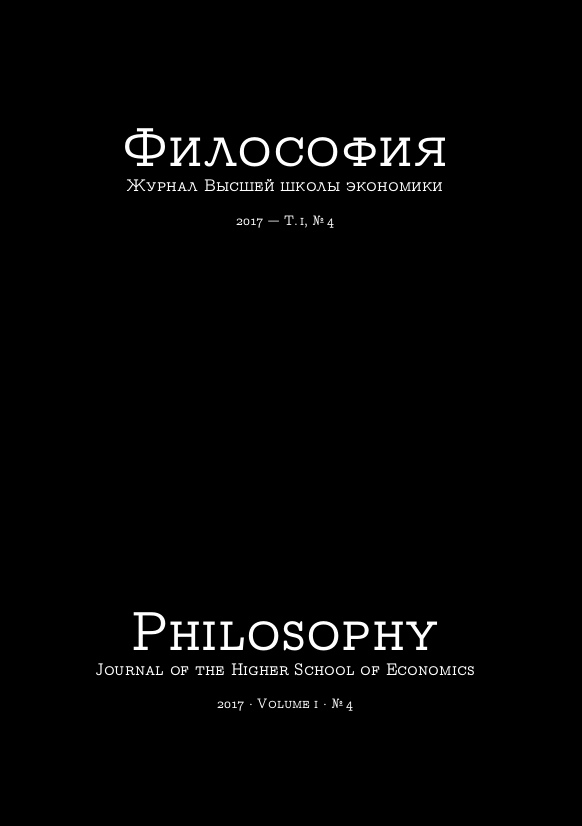Harry Frankfurt and Criticism of the Principle of Alternate Possibilities
Abstract
This article is concerned with Harry Frankfurt's seminal paper "Alternate Possibilities and Moral Responsibility". Firstly, it describes the philosophical context of Frankfurt’s paper and explains the main features of the speculative analysis of the ability to do otherwise proposed by G. E. Moore as a possible solution to the problem of free will. Secondly, it reveals the general insights that motivate Frankfurt’s criticism of the principle of alternate possibilities. Thirdly, it examines Frankfurt’s account of free action based on the distinction between the desires of different orders in the structure of the motivational system of the agent. Fourthly, it explores some ways to criticize Frankfurt's thought experiment and some particular conclusions that were drawn from this experiment. The first strategy seeks to reveal some hidden alternates in Frankfurt's thought experiment that are enough robust to ground the moral responsibility of the agent. The second strategy uncovers the hidden assumption of Frankfurt’s experiment: it presupposes but does not prove that determinism is compatible with moral responsibility. The third strategy concerns the new formulation of the principle of alternate possibilities. This new principle is supposed to be immune to the Frankfurt-type cases. This third strategy is further elaborated in the W}-defense proposed by D. Widerker, who raised the question of whether we are morally justified to expect that the agent would do something else than what he actually does in Frankfurt-type cases.






